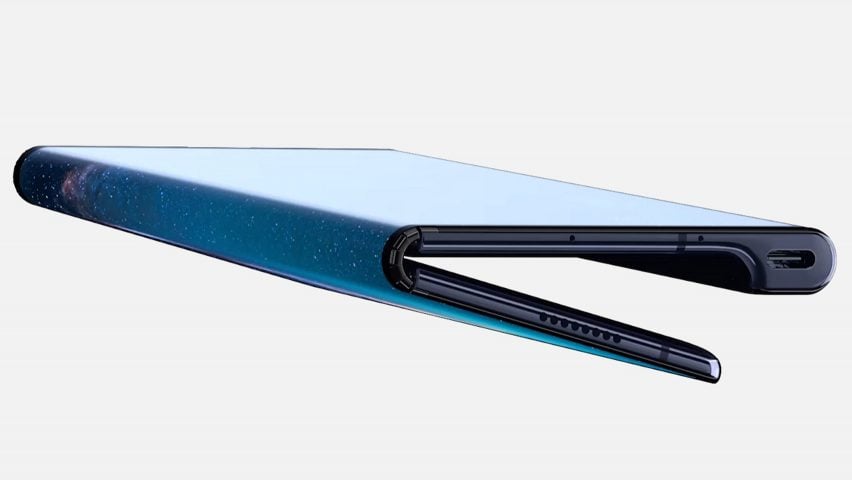Huawei has released its Mate X folding smartphone with a flexible screen that bends around the exterior of the device.
According to Huawei, the Mate X "defines a new category of mobile devices" by way of its thin, flexible screen that can be folded to half its size, turning it from a tablet into a smartphone.
The foldability works by way of an "unprecedented" stretchable hinge that enables users to transform the device from an 8 inch tablet – measured diagonally across the device – into a more compact 6.6 inch smartphone.
When unfolded, the screen boasts a smooth, flat surface with a thickness of 5.4 millimetres. When folded, the two halves of the screen fit snugly together and measure in at 11 millimetres thick, with the shorter half tucking into a raised edge on the reverse.
The screen features an organic light emitting diode (OLED) display, in which each pixel provides its own illumination instead of being illuminated by an LED backlight.
The Chinese tech giant announced the launch of Mate X at the 2019 Mobile World Congress in Barcelona on Sunday 24 February.
The announcement came less than a week after rival company Samsung revealed its foldable Galaxy X device, which folds down via a hinge mechanism from a 7.3 inch tablet into a 4.6-inch smartphone.
"The Huawei Mate X's revolutionary form factor is achieved by Huawei's relentless effort in research and development," said CEO Richard Yu. "It represents a voyage into the uncharted."
"As a new breed of smartphones, Huawei Mate X combines 5G, foldable screen, AI and an all-new mode of interfacing to provide consumers with an unprecedented user experience," he continued.
Other features include a split screen mode designed for multitasking, which allows users to write emails or handle files while browsing the internet or watching a video.
A fingerprint recognition sensor is integrated into the power switch button, enabling users to securely open the device with just one touch.
The Mate X also features a multi-lens Leica camera system integrated on the front and back of the device, which has the same quality camera for taking selfies as it does for rear-facing images.
The dual screen design allows both the photographer and the subject to preview the image in real-time from both sides when capturing portrait shots.
In a bid to "lead the 5G evolution", the Mate X boasts a dual sim (with four integrated 5G antennae) that provides access to 2G, 3G, 4G and 5G network signals across the globe.
These elements are all supported by a powerful 4,500 milliamp Hour (mAh) battery, which can be charged to 85 per cent in just 30 minutes using the device's SuperCharge feature.
While Samsung's Galaxy X will set buyers back $1,980, Huawei's Mate X comes at an even higher price of $2,600, and will be available to purchase by the summer of 2019.
The Chinese tech company recently developed an app that uses artificial intelligence to allow the visually impaired to "see" the emotion on the face of someone they are talking to by translating it into sound.

